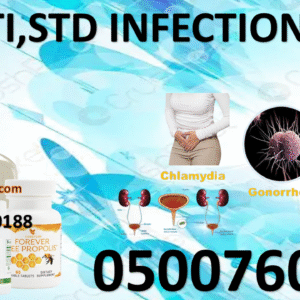What is vaginitis?
Vaginitis, also called vulvovaginitis, is an inflammation or infection of the vagina. It can also affect the vulva, which is the external part of a woman’s genitals. Vaginitis can cause itching, pain, discharge, and odor.
Vaginitis is common, especially in women in their reproductive years. It usually happens when there is a change in the balance of bacteria or yeast that are normally found in your vagina. There are different types of vaginitis, and they have different causes, symptoms, and treatments.
What causes vaginitis?
Bacterial vaginosis (BV) is the most common vaginal infection in women ages 15-44. It happens when there is an imbalance between the “good” and “harmful” bacteria that are normally found in a woman’s vagina. Many things can change the balance of bacteria, including:
- Taking antibiotics
- Douching
- Using an intrauterine device (IUD)
- Having unprotected sex with a new partner
- Having many sexual partners
Yeast infections (candidiasis) happen when too much candida grows in the vagina. Candida is the scientific name for yeast. It is a fungus that lives almost everywhere, including in your body. You may have too much growing in the vagina because of:
- Antibiotics
- Pregnancy
- Diabetes, especially if it is not well-controlled
- Corticosteroid medicines
Trichomoniasis can also cause vaginitis. Trichomoniasis is a common sexually transmitted infection (STI). It is caused by a parasite. It causes a yellow green, frothy discharge. It raises your risk of other STIs.
- Viral vaginitis is inflammation caused by a virus, like the herpes simplex virus or human papillomavirus. Both spread through sex. They can cause painful sores or warts.
- Noninfectious vaginitis is when something irritates your vagina. It’s often caused by chemicals in soaps, douches, and other hygiene products. You might be allergic to these products, or your vagina might be sensitive.
- Vaginal atrophy is when you have low estrogen levels. It usually happens after menopause or surgical removal of the ovaries. The hormonal changes can make the vagina dry, thin-skinned, and easily irritated.
You can also have vaginitis if you are allergic or sensitive to certain products that you use. Examples include vaginal sprays, douches, spermicides, soaps, detergents, or fabric softeners. They can cause burning, itching, and discharge.
Hormonal changes can also cause vaginal irritation. Examples are when you are pregnant or breastfeeding, or when you have gone through menopause.
Chlamydia. This is the most common sexually transmitted infection (STI), especially among people ages 15-24 years who have multiple sex partners.
Sometimes you can have more than one cause of vaginitis at the same time.
Vaginitis vs. vaginosis
Vaginitis is an infection or inflammation of the vagina. It can be caused by many things. The most common cause is BV. This is when too much of a certain bacteria grow in the vagina.
Vaginitis during pregnancy
When you’re pregnant, your hormone levels change. This can lead to yeast infections, BV, and other forms of vaginitis.
It’s especially important to take care of vaginitis when you’re pregnant. That’s because it can cause health problems for your baby. For example, babies whose mothers had BV during pregnancy are at a higher risk of being born too early and too small.
Yeast infection vs. BV
For people who haven’t gone through menopause yet, these are the two most common forms of vaginitis. But they can be hard to tell apart.
Yeast infections are an overgrowth of the yeast that you normally have in your body. BV happens when the balance of bacteria is thrown off. With both conditions, you may notice a white or grayish discharge.
How can you tell them apart? If there’s a fishy smell, BV is a better guess. If your discharge looks like cottage cheese, a yeast infection may be to blame. A yeast infection is also more likely to cause itching and burning, though BV might make you itchy, too.
It’s possible to have both at the same time.
What are the symptoms of vaginitis?
The symptoms of vaginitis depend on which type you have.
With BV, you may not have symptoms. You could have a thin white or gray vaginal discharge. There may be an odor, such as a strong fish-like odor, especially after sex.
Yeast infections produce a thick, white discharge from the vagina that can look like cottage cheese. The discharge can be watery and often has no smell. Yeast infections usually cause the vagina and vulva to become itchy and red.
You may not have symptoms when you have trichomoniasis. If you do have them, they include itching, burning, and soreness of the vagina and vulva. You may have burning during urination. You could also have gray-green discharge, which may smell bad.
What Causes Vaginitis?
Vaginitis can be caused by microbial imbalances, STIs, chemicals, or hormonal imbalances.
Microbial imbalances
A healthy vagina has certain bacteria and other microbes. Usually, there are many different kinds of microbes, and they all live in balance. You might hear this called your vaginal microbiome or flora.
But some things can upset this balance. When this happens, one microbe can grow too much, or an unwelcome microbe can take hold and cause an infection. This can lead to vaginitis.
Microbial imbalances can be caused by:
Antibiotics. Antimicrobial drugs, including antibiotics, are medicines that kill germs. Antibiotics kill unfriendly germs, but they also can kill friendly germs. When you take antibiotics for a urinary tract infection or other illnesses, they can kill the friendly germs in your vagina. This leaves extra room for other microbes to grow.
Diabetes. This can cause too much sugar in your pee and vagina. The extra sugar affects which types of microbes can grow there.
Immunosuppressants or biologics. These drugs treat some autoimmune conditions. They can raise your risk of yeast infections.
Imbalances like BV aren’t spread by sex. But they are more common among people who have sex regularly. BV is also more common among people who have more than one sex partner, douche, or smoke cigarettes.
STIs
Many types of vaginitis are caused by STIs. These are infections that spread through sex, including anal and oral sex. Condoms, dental dams, and other barrier methods can help prevent some (but not all) STIs.
These infections might or might not cause symptoms. So if you have sex regularly (especially if you have multiple partners), you should talk to your doctor about getting tested for them at your yearly checkup.
If left untreated, some of these can permanently damage your reproductive organs or cause other health problems. You could also pass them to a partner.
Chemicals
Not all vaginitis is caused by imbalances or infections. Sometimes, it’s caused by allergic reactions to or irritation from chemicals in hygiene products. The skin of the vagina is very delicate, so it can be more sensitive than other body parts.
Inflammation can be caused by products like:
- Detergents
- Lotions
- Over-the-counter odor or itch products
- Wipes
- Douches
- Fabric softeners
- Perfumed soaps
- Lubricants
- Spermicides
- Vaginal sprays
If you think something is irritating your vagina, stop using it.
Hormonal imbalances
Low hormones, especially estrogen, can cause your vagina to be dry. This affects the balance of microbes in your vagina. It’s called atrophic vaginitis, vulvovaginal atrophy, or genitourinary syndrome of menopause.
It can happen when:
- You’re pregnant.
- You’ve recently given birth.
- You’re breastfeeding.
- You are going through menopause.
- You’ve had your uterus or ovaries removed.
- You take certain medications for breast cancer or endometriosis.
Risk factors
Some things can make you more likely to get vaginitis. These include:
- Antibiotics or steroids
- Birth control pills that have a lot of estrogen
- Spermicides
- Intrauterine devices
- STIs
- Pregnancy
- Unmanaged diabetes
- Immune problems
- Thyroid or endocrine problems
- Hygiene products like perfumed soaps or vaginal sprays
- Douches
- Wet or tight-fitting clothing
Vaginitis Symptoms
Symptoms of vaginitis depend on what is causing it. Sometimes, you might not have any symptoms at all. In general, you should call your doctor when:
- Your vaginal discharge changes color is heavier or smells different.
- You notice itching, burning, swelling, or soreness around or outside of your vagina.
- It burns when you pee.
- Sex is uncomfortable.
- You have chills, fever, and pain in your pelvis.
Itchiness or irritation can happen anytime but are often worse at night. Having sex also can make symptoms worse.
Vaginitis discharge
Your vagina makes a discharge that’s usually clear or slightly cloudy. In fact, that’s one way it cleans itself.
Healthy discharge doesn’t really have a smell or make you itch. How much of it and exactly what it looks and feels like can vary during your menstrual cycle. Sometimes, you might have a thin or watery discharge. Toward the end of your cycle, it might be thicker. That’s all normal.
But if your discharge smells, looks or feels unusual, or is itchy, it could be a sign of a problem. Different types of vaginitis affect your discharge in different ways. Depending on the cause, it could become thick and clumpy like cottage cheese (yeast infections), frothy and yellowish green (trichomoniasis), smelly like bad fish (BV), or change in other ways. Talk to your doctor about any unusual discharge.




Reviews
There are no reviews yet.